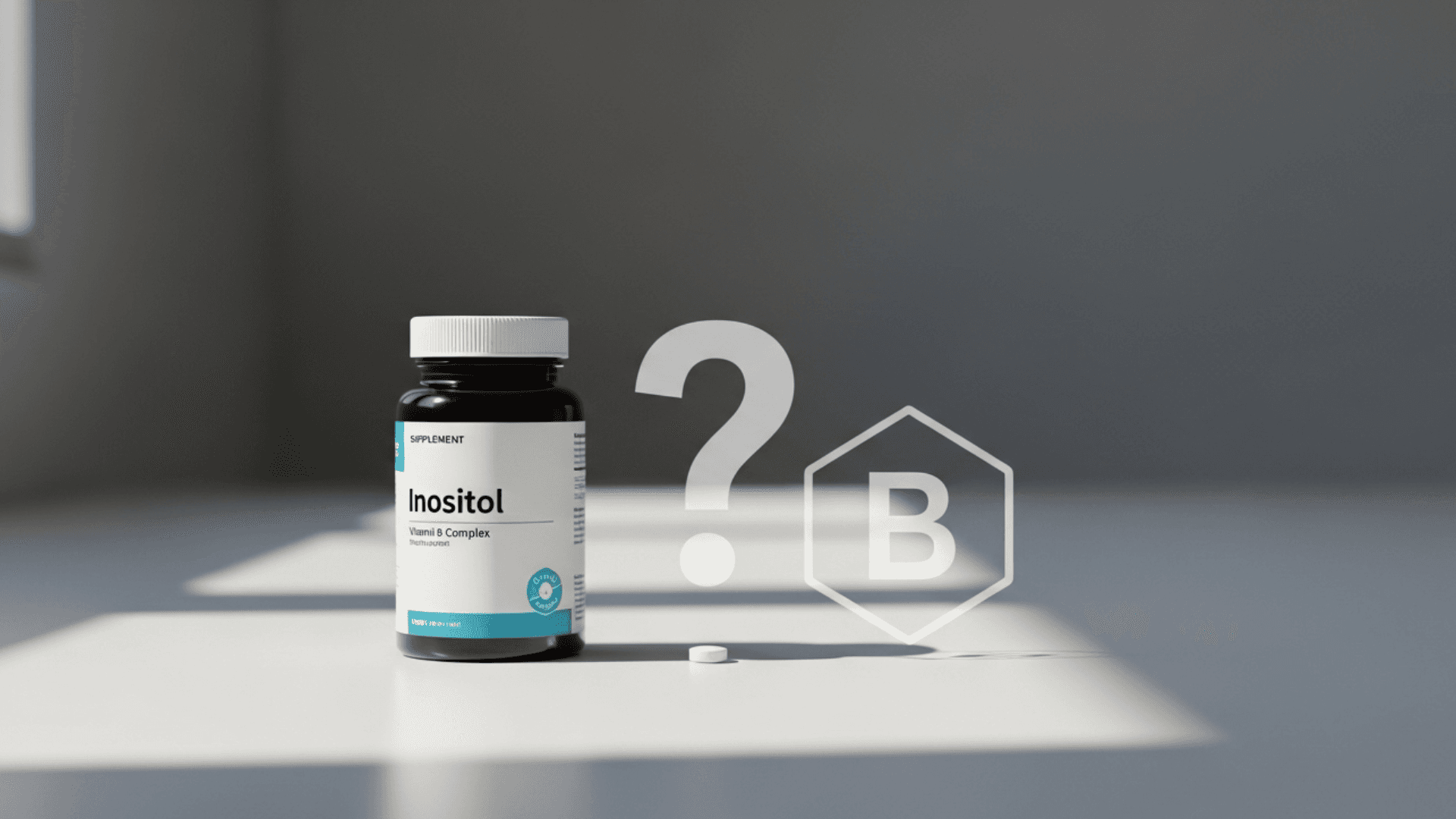Is Inositol a Vitamin? Differences with B8
Is inositol a vitamin? This guide clarifies why it was once called Vitamin B8 and explains the key differences from true B-vitamins, backed by scientific insights.

Inositol is often mistakenly called a vitamin, specifically vitamin B8, but is it really one? This article clarifies the classification, key differences from true B vitamins, and natural sources, drawing from updated 2025 insights. If you're exploring inositol for health benefits like PCOS or mental wellness, understanding its true nature is essential.
Why Inositol Was Once Called Vitamin B8
Inositol was historically classified as vitamin B8 in the B-complex group due to its role in cell signaling and metabolism. However, it was declassified because the human body can synthesize it endogenously, unlike true vitamins which must be obtained from diet or supplements. Today, it's considered a vitamin-like compound or sugar alcohol, essential for functions like insulin regulation and neurotransmitter support.
- Historical Context: Early research in the mid-20th century grouped it with B vitamins for its water-soluble properties and health benefits.
- Current View: As of 2025, experts confirm it's not a vitamin but plays vitamin-like roles in metabolic and mental health.
To learn more about these functions, read our complete guide.
Key Differences Between Inositol and Other B Vitamins
Unlike true B vitamins (e.g., B1-thiamine, B6-pyridoxine), inositol stands out in several ways. Here's a breakdown:
- Synthesis in the Body: B vitamins are essential nutrients that can't be produced by humans, requiring dietary intake. Inositol is synthesized in the kidneys and other tissues, though supplementation can boost levels for therapeutic needs.
- Chemical Structure: Inositol is a cyclic sugar alcohol, not a typical vitamin compound. True B vitamins vary but are generally nitrogen-containing molecules vital for energy production.
- Deficiency Risks: True B vitamin deficiencies (e.g., beriberi from B1 lack) are common without diet; inositol "deficiencies" are rare but linked to conditions like PCOS, where imbalances occur.
- Health Roles: While B vitamins focus on energy metabolism and nerve function, inositol excels in insulin signaling, hormone balance, and mental health support.
These differences highlight why inositol isn't a "true" vitamin but remains crucial for wellness.
Can You Get Enough Inositol from Food?
Yes, inositol is abundant in many foods, making dietary sources a great starting point before supplements. However, processing can reduce levels, and those with conditions like diabetes may need more.
Top Food Sources:
- Fruits: Citrus (oranges, cantaloupe) provide about 100-500 mg per serving.
- Grains and Beans: Whole grains (oats, wheat bran) and legumes (beans, lentils) offer 200-1,000 mg per cup.
- Nuts and Seeds: Almonds and peanuts contain 100-300 mg per ounce.
- Other: Vegetables like cabbage and animal products (liver) also contribute smaller amounts.
For therapeutic doses (e.g., 2-4 grams daily), supplements are often necessary, as food alone may not suffice.
Practical Tips and Considerations
If supplementing, choose forms like myo-inositol for best absorption. Consult a doctor, as high doses may interact with medications. In 2025, inositol remains a non-vitamin powerhouse for metabolic and mental support.
In summary, inositol isn't a true vitamin like B8—it's a synthesized compound with unique benefits. Explore food sources first for natural intake.
References
Frequently Asked Questions
While the term "Vitamin B8" was historically used for inositol, it is no longer scientifically accurate. True vitamins cannot be synthesized by the body in sufficient amounts, whereas inositol can. Therefore, you won't find an officially recognized "Vitamin B8" today.
Although the body produces inositol, certain health conditions like PCOS or insulin resistance are associated with inositol imbalances or deficiencies in specific tissues. Supplementation can provide a higher, therapeutic dose to help correct these imbalances more effectively than the body can on its own.
No. A B-complex vitamin supplement contains a group of eight true B vitamins (B1, B2, B3, B5, B6, B7, B9, B12) that are essential for energy metabolism. Inositol supplements contain only inositol isomers and are used for different primary purposes, such as insulin signaling and hormonal balance.